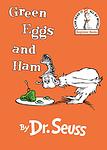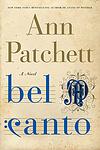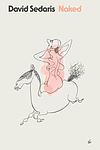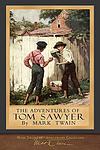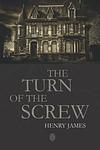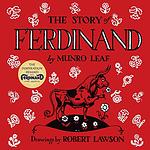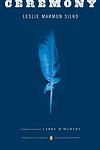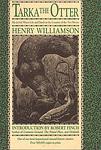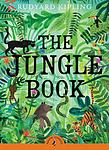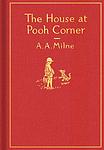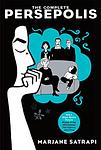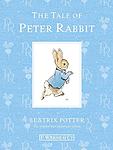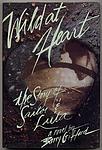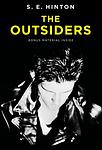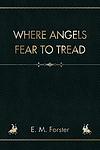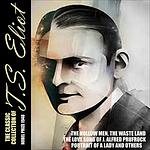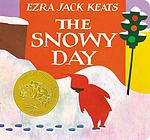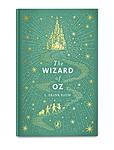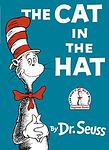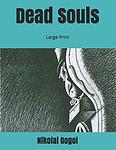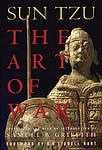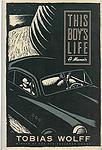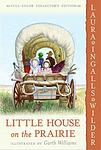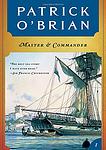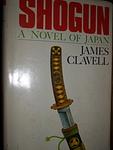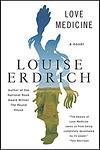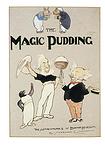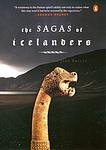Our Users' Favorite Books of All Time
This is one of the 300 lists we use to generate our main The Greatest Books list.
-
Green Eggs and Ham by Dr. Seuss
This classic children's book follows the story of a persistent character who tries to convince his friend to try green eggs and ham. Despite the friend's repeated refusals, the character remains determined, suggesting various locations and companions to try the unusual dish with. In the end, the friend finally agrees to try the green eggs and ham, and to his surprise, he finds that he actually enjoys them. The story is a fun and engaging lesson about trying new things.
The 2323rd Greatest Book of All Time -
Household Tales by Brothers Grimm
"Household Tales" is a collection of German fairy tales that includes popular stories such as "Cinderella", "Little Red Riding Hood", "Hansel and Gretel", and "Snow White". These narratives, often featuring magical elements and moral lessons, have been influential in shaping Western popular culture. The tales range from the whimsical and humorous to the dark and cautionary, reflecting a wide array of human experiences and emotions.
The 315th Greatest Book of All Time -
Bel Canto by Ann Patchett
In an unnamed South American country, a lavish birthday party is thrown for a powerful businessman, with a famous opera singer as the guest of honor. The party is interrupted by a group of terrorists who take everyone hostage, demanding the release of their imprisoned comrades. As weeks turn into months, the hostages and their captors form unexpected bonds. The story explores the relationships that develop under these extraordinary circumstances, and the transformative power of music and love.
The 1165th Greatest Book of All Time -
The Imaginary Invalid by Molière
The play is a satirical comedy that centers around Argan, a hypochondriac who obsesses over his health and squanders his fortune on unnecessary medical treatments. His ailment is exploited by charlatan doctors and a greedy wife, while his daughter's marital future hangs in the balance due to his misguided intentions. The story unfolds with a clever servant, Toinette, and Argan's brother, Béralde, attempting to open his eyes to the truth of his condition and the deceit around him. Through a series of humorous events, including a mock ceremony, the play critiques the medical profession and the foolishness of those who blindly follow it, ultimately advocating for common sense and true familial love.
The 1459th Greatest Book of All Time -
Naked by David Sedaris
"Naked" is a collection of autobiographical essays that explore the author's life from his quirky childhood in North Carolina to his adult experiences in Chicago and New York. The stories are filled with humor, wit, and a keen observation of human nature and family dynamics. The author's unique perspective and storytelling style present a captivating, hilarious, and sometimes poignant look at the absurdities of life.
The 5415th Greatest Book of All Time -
The Underdogs by Mariano Azuela
"The Underdogs" is a novel set during the Mexican Revolution, depicting the conflict from the perspective of the peasants who fought in it. The story follows the journey of a poor, illiterate Indian named Demetrio Macias, who becomes a reluctant leader in the rebellion against the federal government. The narrative explores the brutality and chaos of war, the corruption of power, and the often futile nature of rebellion, painting a grim picture of the human cost of revolution.
The 1034th Greatest Book of All Time -
Me Talk Pretty One Day by David Sedaris
This book is a collection of humorous, autobiographical essays that explore the author's experiences and observations in his life. The first part of the book focuses on his upbringing in North Carolina, his Greek heritage, his relationship with his eccentric family, and his early jobs. The second part of the book details his move to Normandy, France, his struggle to learn the French language, and his observations of French culture. The author's self-deprecating humor and sharp wit provide a satirical view of his life's journey.
The 1374th Greatest Book of All Time -
The Adventures of Tom Sawyer by Mark Twain
The book chronicles the mischievous adventures of a young boy living on the Mississippi River in the mid-19th century. The protagonist, a clever and imaginative boy, often finds himself in trouble for his pranks and daydreams. His escapades range from his romance with a young girl, his search for buried treasure, his attendance at his own funeral, and his witnessing of a murder. The narrative captures the essence of childhood and the societal rules of the time.
The 228th Greatest Book of All Time -
The Sound of the Mountain by Yasunari Kawabata
The novel centers around an aging businessman who, upon hearing nightly sounds from the nearby mountain, begins to confront his own mortality and the complexities within his family. As he navigates his strained relationship with his wife, his adulterous son, and his daughter-in-law whom he harbors feelings for, he experiences a profound sense of solitude and existential dread. The narrative subtly explores themes of aging, alienation, and the ephemeral nature of life.
The 1553rd Greatest Book of All Time -
The Turn of the Screw by Henry James
A young governess is hired to care for two children at a remote English estate. However, she soon becomes convinced that the grounds are haunted by two former employees who have taken control of the children. As she fights to free the children from these apparitions, the line between reality and her own fears becomes increasingly blurred, leading to a chilling and ambiguous conclusion.
The 268th Greatest Book of All Time -
Moll Flanders by Daniel Defoe
"Moll Flanders" is a novel about the life of a woman in the 17th century who is born in Newgate Prison to a mother who is a convict. Moll is raised by gypsies until she is old enough to take care of herself. She becomes a servant, marries multiple times, becomes a thief, and eventually ends up in Newgate Prison herself. Despite her tumultuous life, she maintains her spirit and cunning, using both to navigate the harsh realities of her world. The book is a commentary on the social and economic realities of the time, particularly for women.
The 440th Greatest Book of All Time -
The Alchemist by Paulo Coelho
A young Andalusian shepherd named Santiago dreams of finding a worldly treasure and sets off on a journey across the Egyptian desert in search of it. Along the way, he encounters a series of characters who impart wisdom and help guide his spiritual journey. The novel explores themes of destiny, personal legend, and the interconnectedness of all things in the universe. The boy learns that true wealth comes not from material possessions, but from self-discovery and attaining one's "Personal Legend".
The 305th Greatest Book of All Time -
Homage to Catalonia by George Orwell
The book is a personal account of the author's experiences during the Spanish Civil War, specifically his time with the POUM (Partit Obrer d'Unificació Marxista) militia in Catalonia. He provides an in-depth look at the social revolution that took place, the daily life of a soldier, the political infighting and betrayals among the Republican factions, and his eventual disillusionment with the cause he initially supported. The book is both a war memoir and a detailed analysis of a complex political situation.
The 356th Greatest Book of All Time -
Billy Liar by Keith Waterhouse
"Billy Liar" is a comedic novel that revolves around the life of a young man, Billy Fisher, who is stuck in a dull job and a boring town. Billy, a habitual liar, escapes his mundane life by retreating into his own fictional world, "Ambrosia." However, his lies begin to catch up with him, causing conflict with his family, his three girlfriends, and his boss. The story is a poignant exploration of the consequences of escapism and deception, as well as a critique of post-war provincial life in England.
The 1153rd Greatest Book of All Time -
Story of Ferdinand by Munro Leaf
The book tells the story of Ferdinand, a gentle, peace-loving bull living in Spain who would rather smell flowers than participate in bullfights. Despite his mother's worries, Ferdinand grows up to be a strong bull still with a kind heart who loves smelling flowers. However, when five men come to choose the fiercest bull for a bullfight and Ferdinand is mistakenly selected, he must find a way to stay true to himself even in the face of danger and expectations.
The 939th Greatest Book of All Time -
Ceremony by Leslie Marmon Silko
"Ceremony" is a novel that explores the life of Tayo, a World War II veteran of mixed Laguna Pueblo and white heritage. After returning from the war, Tayo struggles with post-traumatic stress disorder and alcoholism. The novel charts his journey towards healing, which involves embracing his Native American heritage and the traditional ceremonies of his people. Along the way, he must confront racism, poverty, and the destructive forces of Western culture, ultimately finding solace and redemption in the ancient rituals and wisdom of his ancestors.
The 736th Greatest Book of All Time -
A Sentimental Education by Gustave Flaubert
A Sentimental Education is a classic French novel set in the mid-19th century, focusing on the life of a young man named Frederic Moreau. Frederic, from a provincial background, moves to Paris and becomes infatuated with an older woman, Madame Arnoux. The novel traces Frederic's life and romantic pursuits, as well as his friendships and experiences in Paris, against the backdrop of significant historical events like the 1848 Revolution. The story is a critique of the French middle class and their materialistic values, illustrating the disillusionment and moral corruption of the time.
The 262nd Greatest Book of All Time -
The Bacchae by Euripides
"The Bacchae" is a classic Greek tragedy where the god Dionysus, disguised as a mortal, returns to his birthplace in Greece to punish the impious King Pentheus who denies Dionysus's divine nature and refuses to worship him. The narrative explores themes of revenge, mortality, and the relationship between man and god. Dionysus uses his power to drive the women of the city into a crazed frenzy, leading to a tragic end for King Pentheus and his mother Agave.
The 374th Greatest Book of All Time -
Practical Magic by Alice Hoffman
The book follows the lives of the Owens sisters, Sally and Gillian, who come from a long line of witches. Raised by their eccentric aunts after their parents' death, the sisters grow up learning about love and magic. However, they face an age-old curse that any man who falls in love with an Owens woman will meet a tragic end, leading them on a journey of self-discovery, acceptance, and a struggle to overcome their family's dark past.
The 5288th Greatest Book of All Time -
Tarka the Otter by Henry Williamson
"Tarka the Otter" is a novel that follows the life of an otter, Tarka, in the wild. The story is set in North Devon, England and provides a detailed account of Tarka's experiences, from his birth to his eventual death, exploring his interactions with other animals, his struggles for survival, and his encounters with humans. The narrative is noted for its vivid and realistic descriptions of wildlife and the natural world.
The 1404th Greatest Book of All Time -
The Jungle Book by Rudyard Kipling
This classic work is a collection of stories set in the Indian jungle, where a human child, Mowgli, is adopted and raised by a pack of wolves. The book follows Mowgli's adventures and lessons learned from his animal friends and foes, including the wise bear Baloo and the cunning panther Bagheera. The book also includes other tales of animals and humans coexisting in the wild, showcasing themes of survival, morality, and the law of the jungle.
The 764th Greatest Book of All Time -
The House at Pooh Corner by A. A Milne
This book follows the adventures of a lovable bear named Pooh and his friends in the Hundred Acre Wood. The story introduces a new character, Tigger, who adds more excitement to Pooh's world. From building a house for Eeyore, to an expedition to the North Pole, and the invention of a new game called Poohsticks, the friends navigate through their world with humor and wisdom. The book ends with a touching farewell scene as one of the characters prepares to leave the forest.
The 954th Greatest Book of All Time -
Persepolis Two by Marjane Satrapi
This graphic novel continues the story of a young girl growing up in Iran during the Islamic Revolution. After being sent to Europe for her safety, she struggles with feeling out of place and longs for her homeland. Eventually, she returns to Iran, only to find it vastly different from the place she remembered. The book explores themes of identity, culture, and the effects of political upheaval on a personal level.
The 3148th Greatest Book of All Time -
Sandman by Neil Gaiman
"Sandman" is a dark and fantastical series that follows the character Dream, also known as Morpheus, one of the seven Endless who personify certain universal concepts that transcend beyond gods. The narrative explores Dream's realm and responsibilities, his interactions with humans, gods, and his own family, as well as the consequences when he is captured and subsequently escapes after 70 years. The series is renowned for its blending of myth, history, and contemporary issues, creating a richly nuanced universe that delves into the nature of storytelling itself.
The 1101st Greatest Book of All Time -
The Tale of Peter Rabbit by Beatrix Potter
This children's classic tells the story of a mischievous young rabbit who disobeys his mother's warning and ventures into Mr. McGregor's garden. After indulging in the garden's bountiful offerings, the young rabbit finds himself chased by Mr. McGregor, narrowly escaping capture. He eventually makes his way back home to his mother, who scolds him for his disobedience and sends him to bed without supper.
The 689th Greatest Book of All Time -
A Room With a View by E. M. Forster
Set in Italy and England, the novel tells the story of a young English woman, Lucy Honeychurch, who travels to Florence with her older cousin and chaperone. During her stay in Italy, Lucy meets and falls in love with a free-spirited man, but due to societal pressures, she becomes engaged to a wealthy but pretentious man back home in England. The novel explores themes of societal norms, personal growth, and the struggle between heart and mind as Lucy must decide between conforming to societal expectations or following her own desires.
The 309th Greatest Book of All Time -
Wild at Heart: The Story of Sailor and Lula by Barry Gifford
The book tells the story of Sailor Ripley and Lula Pace Fortune, two young lovers from the South who embark on a terrifying and exhilarating journey across America. Sailor, a rebellious outlaw with a troubled past, and Lula, a passionate woman with a zest for life, face numerous challenges and dangerous situations, including encounters with eccentric characters and run-ins with the law. Their compelling, roller-coaster romance is a testament to the extreme lengths people will go to preserve their love amidst chaos and adversity.
The 3337th Greatest Book of All Time -
Sir Gawain and the Green Knight by Simon Armitage
The book is a modern translation of a 14th century alliterative poem, which tells the story of Sir Gawain, a knight of King Arthur's Round Table. The story begins when a mysterious Green Knight arrives at Arthur's court, challenging the knights to a beheading game. Gawain accepts the challenge and beheads the Green Knight, who surprisingly survives and tells Gawain to seek him out a year later to return the blow. The book follows Gawain's journey, filled with trials and temptations, as he tries to fulfill his promise to the Green Knight, maintaining his honor and chivalry.
The 3053rd Greatest Book of All Time -
The Outsiders by S. E. Hinton
The book is a coming-of-age story focusing on a group of teenage boys living in a poor neighborhood. They are constantly at odds with the affluent kids from the other side of town, leading to violent gang fights. The story, narrated by a 14-year-old boy, explores themes such as class conflict, friendship, and the loss of innocence. It also delves into the struggles of the protagonist as he grapples with his identity, societal expectations, and the harsh realities of life.
The 662nd Greatest Book of All Time -
Suttree by Cormac McCarthy
Set in 1950s Knoxville, Tennessee, the novel follows the life of a man who has renounced his former existence of privilege to live among society's outcasts on the river. He is an educated man, who has chosen a life of fishing and surviving on the fringes of society. The narrative is filled with his encounters with various characters from the underbelly of the city, including criminals, prostitutes, and other outcasts. Despite his attempts to isolate himself, he finds himself drawn into the problems and tragedies of those around him.
The 758th Greatest Book of All Time -
Absolute Beginners by Colin MacInnes
"Absolute Beginners" is a story set in the late 1950s in London, focusing on a young, unnamed freelance photographer. The protagonist navigates through the changing landscape of the city, dealing with issues of racism, the emerging youth culture, and the beginnings of a more liberal society. The novel is a vivid exploration of a transformative period in British history, filled with music, fashion, and social upheaval, seen through the eyes of a young man on the brink of adulthood.
The 1154th Greatest Book of All Time -
The Merry Adventures of Robin Hood by Howard Pyle
The book is a captivating tale about the legendary Robin Hood and his band of merry men in Sherwood Forest. It chronicles their various adventures as they rob from the rich to give to the poor, outwit the Sheriff of Nottingham, and have encounters with characters such as Little John, Friar Tuck, and Maid Marian. The story is filled with humor, action, and a strong sense of justice, painting a vivid picture of medieval England.
The 1214th Greatest Book of All Time -
A Doll's House by Henrik Ibsen
This classic play focuses on the life of Nora Helmer, a woman living in a seemingly perfect marriage with her husband, Torvald. However, as the story unfolds, it becomes clear that Nora has been hiding a significant secret related to their finances. The revelation of this secret, and the subsequent fallout, challenges societal norms and expectations of the time, particularly in regards to gender roles and the institution of marriage. Nora's eventual decision to leave her husband and children in pursuit of her own independence serves as a powerful commentary on individual freedom and self-discovery.
The 323rd Greatest Book of All Time -
Closely Watched Trains by Bohumil Hrabal
"Closely Watched Trains" is a darkly humorous tale set in Nazi-occupied Czechoslovakia during World War II. It follows the life of a young, inexperienced railway worker who is struggling with his sexual awakening while dealing with the harsh realities of war. The novel is a poignant exploration of the absurdity of life, the tragicomedy of human existence, and the power of ordinary people to resist oppression.
The 1614th Greatest Book of All Time -
King Lear by William Shakespeare
This classic tragedy revolves around the aging King Lear, who decides to divide his kingdom among his three daughters based on their declarations of love for him. The two elder daughters, Goneril and Regan, flatter him with insincere praises, while the youngest, Cordelia, refuses to play the game and is disowned. As the king's sanity deteriorates, his kingdom falls into chaos under the rule of his deceitful elder daughters. The play explores themes of power, loyalty, madness, and justice, culminating in a tragic ending where almost all the main characters, including King Lear and Cordelia, die.
The 257th Greatest Book of All Time -
The Phantom of the Opera by Gaston Leroux
The book tells the story of a beautiful soprano at the Paris Opera House named Christine Daaé who becomes the obsession of a mysterious, disfigured musical genius living in the subterranean labyrinth beneath the opera house. Known as the Phantom, he terrorizes the opera company to compel them to keep giving roles to Christine, whom he tutors in secret. The tale unfolds with love, jealousy, and violence, culminating in a dramatic conclusion.
The 1276th Greatest Book of All Time -
Milkman by Anna Burns
Set during The Troubles in Northern Ireland, this novel follows an unnamed 18-year-old protagonist who is pursued by a powerful, older man known only as the Milkman. Despite her attempts to avoid him and maintain a low profile in her community, rumors spread about their supposed affair, leading to increased scrutiny and isolation. The book explores the protagonist's struggle to maintain her individuality amidst political and social turmoil, while also dealing with the pervasive threat of violence and the power of gossip in a close-knit community.
The 3678th Greatest Book of All Time -
The Virgin Suicides by Jeffrey Eugenides
The novel is a haunting and tragic tale of the five Lisbon sisters who live in suburban America in the 1970s. Their strict, overbearing parents keep them isolated from the world, leading to a sense of mystery and intrigue about the girls in their community. This fascination turns into morbid curiosity when one of the sisters commits suicide, and the remaining sisters become even more sheltered. The story is narrated by a group of neighborhood boys who are obsessed with the girls, and their suicides, trying to piece together the reasons behind their tragic ends.
The 814th Greatest Book of All Time -
Where Angels Fear to Tread by E. M. Forster
This novel explores the clash of cultures between conservative English society and passionate Italy through the experiences of a young English widow, Lilia Herriton, who impulsively marries a younger Italian man, Gino Carella, while vacationing in Tuscany. The Herriton family, particularly Lilia's brother-in-law Philip, travels to Italy in an attempt to prevent the marriage and later to regain custody of Lilia's child after her death. The narrative critically examines the restrictive morals and prejudices of Edwardian England while highlighting the destructive effects of blind adherence to societal conventions.
The 2118th Greatest Book of All Time -
Light in August by William Faulkner
Set in the American South during the 1930s, this novel explores complex social and personal issues through the intertwining stories of its characters. The narrative primarily follows a man of ambiguous racial identity on a quest to find his father, a pregnant woman searching for the father of her unborn child, and a disgraced minister attempting to navigate his own moral compass. The book delves into themes of identity, race, and the human struggle for understanding and redemption, all set against the backdrop of the deep-rooted prejudices and social norms of the time.
The 168th Greatest Book of All Time -
The End of the Affair by Graham Greene
Set in London during and just after World War II, the novel revolves around a love affair between Maurice Bendrix, a writer, and Sarah Miles, the wife of a civil servant. The story is narrated by Bendrix, who is obsessed with Sarah and hires a private investigator to follow her when he suspects she's having another affair. The novel explores themes of love, hate, and the existence of God, with Sarah's faith playing a significant role in the narrative.
The 284th Greatest Book of All Time -
A Thousand Splendid Suns by Khaled Hosseini
This novel explores the lives of two Afghan women, Mariam and Laila, who are brought together by war and fate. Mariam, an illegitimate child, suffers from the stigma surrounding her birth and the abuse she faces from her bitter mother. When she is married off to Rasheed, her life becomes a nightmare. Later, she becomes a co-wife to Laila, a beautiful and educated girl who also ends up as Rasheed's wife due to a series of tragic events. Despite their initial rivalry, the two women form a bond and become sources of support for each other in the face of their husband's brutalities and the war-torn world of Kabul.
The 1896th Greatest Book of All Time -
The Waste Land by T. S. Eliot
"The Waste Land" is a long poem that presents a bleak and despairing view of the world following the devastation of World War I. The poem is divided into five parts and uses a wide range of literary and cultural references, as well as multiple narrators, to depict a world in ruins. It explores themes of disillusionment, despair, and the decline of civilization, and is often considered a seminal work of modernist literature.
The 198th Greatest Book of All Time -
Sarah, Plain and Tall by Patricia MacLachlan
This is a heartwarming story set in the late 19th century about a widower and his two children living on the prairie who place an ad for a wife and mother. A woman named Sarah from Maine responds and comes to live with them for a trial period. Over time, Sarah, who is described as plain and tall, forms a bond with the children and the father, and despite her longing for the sea, she decides to stay and become a part of their family.
The 1748th Greatest Book of All Time -
Novel With Cocaine by M. Ageyev
The book in question is a psychological novel set in the tumultuous period of the Russian Revolution. It follows the life of a disaffected young man who, after being expelled from school, descends into a hedonistic lifestyle in Moscow's seedy underbelly. As he indulges in romantic pursuits and the eponymous drug, his intellectual arrogance and detachment from society grow. The narrative offers a dark and introspective exploration of nihilism, addiction, and the loss of innocence, ultimately painting a portrait of a protagonist caught between the demise of old-world Russia and the rise of the Soviet Union, all while grappling with his own moral decay.
The 2173rd Greatest Book of All Time -
The Snowy Day by Ezra Jack Keats
The book tells the story of a young boy's adventures on a snowy day. He wakes up to find his city covered in snow and spends the day exploring, making tracks, building a snowman, and even trying to save a snowball for the next day. The story beautifully captures the wonder and joy that a child experiences during a snowfall, making it a timeless classic for children.
The 1025th Greatest Book of All Time -
The Wonderful Wizard of Oz by L. Frank Baum
A young girl from Kansas is swept away by a tornado to a fantastical land called Oz. To return home, she must find the mysterious Wizard in the Emerald City, and on her journey, she befriends a Scarecrow in need of a brain, a Tin Woodman longing for a heart, and a Cowardly Lion seeking courage. They all hope the Wizard can grant their wishes, but they must first overcome the Wicked Witch of the West who poses a great danger to them.
The 329th Greatest Book of All Time -
Sons and Lovers by D. H. Lawrence
"Sons and Lovers" is a semi-autobiographical novel that explores the complex relationships between a miner's wife, her husband, and their two sons. The story focuses on the intense emotional and psychological bonds between the mother and her sons, as well as the struggles they face in their romantic relationships due to their deep attachment to their mother. The novel delves into themes of class, love, sexuality, and the oedipal complex, presenting a vivid picture of working-class life in early 20th century England.
The 127th Greatest Book of All Time -
Dirk Gently's Holistic Detective Agency by Douglas Adams
This humorous science fiction novel follows the eccentric detective Dirk Gently, who operates based on the fundamental interconnectedness of all things. His cases involve time travel, ghosts, and an Electric Monk, a labor-saving device that believes things for you. Dirk's current investigation revolves around the disappearance of a cat, a multimillionaire, and a horse in a bathroom, all seemingly unrelated events, but in Dirk's holistic world, everything is connected.
The 1509th Greatest Book of All Time -
The Cat in the Hat by Dr. Seuss
When a mischievous cat wearing a red and white-striped hat appears at the home of two bored children on a rainy day, their afternoon is turned upside down. The cat's antics, including juggling various household items and introducing two chaotic creatures, Thing 1 and Thing 2, create a mess and a series of adventures. However, just as their mother is returning home, the cat manages to clean up the mess with a special machine, leaving the children wondering if their wild afternoon was real or just a dream.
The 606th Greatest Book of All Time -
The Adventures of Augie March by Saul Bellow
"The Adventures of Augie March" is a novel set in Chicago during the Great Depression. The story follows the life of Augie March, a poor but spirited boy growing up in a broken home, as he navigates his way through life. The narrative explores his various jobs, relationships, and adventures, as he constantly seeks his identity and place in the world. His journey is marked by a series of encounters with different people and experiences, each shaping him in unique ways.
The 179th Greatest Book of All Time -
Dead Souls by Nikolai Gogol
In this satirical novel, a man travels through Russia buying up the titles to deceased serfs (or "souls") from their naive landowners, under the guise of a get-rich-quick scheme. However, his real plan is to use these "dead souls" to create a phantom estate and secure a massive loan. The story explores the corruption and greed prevalent in 19th-century Russian society and provides a unique perspective on the human condition.
The 135th Greatest Book of All Time -
Lonesome Dove by Larry McMurtry
The book tells the story of two retired Texas Rangers who embark on a perilous cattle drive from Texas to Montana in the 1870s. The narrative focuses on the duo's adventures and the characters they meet along the way, including a variety of outlaws, Indians, and settlers. This epic tale of the Old West explores themes of friendship, unrequited love, and the harsh realities of frontier life.
The 518th Greatest Book of All Time -
The Art of War by Sun Zi
This ancient Chinese military treatise, written by a renowned general and military strategist, is a comprehensive guide on military strategy and tactics. It covers various aspects of warfare, from planning and preparation to execution and aftermath. The work emphasizes the importance of understanding one's enemy, using deception, and adapting to changing circumstances. It also stresses the importance of terrain, morale, and leadership. Despite its military focus, its principles have been applied to business, politics, and other fields, making it a timeless classic on strategy.
The 475th Greatest Book of All Time -
Stoner by John Williams
The novel follows the life of William Stoner, a farm boy turned academic, who becomes a professor of English literature at the University of Missouri. Despite his love for teaching and his passion for literature, Stoner's life is marked by a series of personal and professional disappointments, including a loveless marriage, an unsuccessful career, and a failed relationship with a fellow professor. Throughout his life, Stoner remains dedicated to his work, finding solace and purpose in his commitment to the life of the mind.
The 1945th Greatest Book of All Time -
The Invisible Life Of Addie La Rue by V. E. Schwab
The book follows the story of a young woman in 18th-century France who, desperate to escape an arranged marriage and yearning for freedom, makes a Faustian bargain with a mysterious god-like figure to live forever without being remembered by anyone she meets. Her immortality becomes a curse as she moves through the centuries, leaving no mark on the world until, 300 years later, she stumbles upon a young man in a bookstore who, to her shock, remembers her name. This encounter unfolds into a tale of love, memory, and the intrinsic value of leaving one's mark on the world.
The 8314th Greatest Book of All Time -
A High Wind in Jamaica by Richard Hughes
This novel tells the story of a group of children who are accidentally kidnapped by pirates in the Caribbean after a hurricane destroys their home. The children adapt to life on the sea and form a unique bond with the pirates, causing them to question societal norms and morality. The book explores themes of childhood innocence, the loss of innocence, and the blurred lines between civilization and savagery.
The 1004th Greatest Book of All Time -
Herzog by Saul Bellow
The novel centers around Moses Herzog, a middle-aged, intelligent yet distressed man who is going through a mid-life crisis. After his second marriage fails, he falls into a state of emotional turmoil and begins writing letters to friends, family, and even famous figures, expressing his philosophical thoughts and personal feelings. His journey of self-discovery and understanding forms the crux of the story. It's a profound exploration of a man's struggle with the complexities of life and his quest for meaning.
The 197th Greatest Book of All Time -
The Name of the Rose by Umberto Eco
Set in a wealthy Italian monastery in the 14th century, the novel follows a Franciscan friar and his young apprentice as they investigate a series of mysterious deaths within the monastery. As they navigate the labyrinthine library and decipher cryptic manuscripts, they uncover a complex plot involving forbidden books, secret societies, and the Inquisition. The novel is a blend of historical fiction, mystery, and philosophical exploration, delving into themes of truth, knowledge, and the power of the written word.
The 107th Greatest Book of All Time -
This Boy's Life by Tobias Wolff
This memoir explores the author's challenging childhood as he moves across the country with his divorced mother, fleeing an abusive relationship and seeking a better life. The young boy struggles with his identity, often resorting to lies and deceit to create a more favorable image of himself. As he navigates adolescence in a small town in the 1950s, he contends with a violent stepfather, school troubles, and his own rebellious nature. Despite the adversity, he maintains a sense of hope and resilience, offering a compelling portrait of a young man coming of age in post-war America.
The 1653rd Greatest Book of All Time -
Medea by Euripides
"Medea" is a Greek tragedy that tells the story of Medea, a former princess of the "barbarian" kingdom of Colchis, and her husband Jason, who leave her to marry Glauce, the daughter of Creon, king of Corinth. In a fit of rage, Medea decides to take revenge on Jason by killing their children, Jason's new wife, and her father, King Creon. The play explores themes of revenge, women's rights, and the dangers of absolute power.
The 216th Greatest Book of All Time -
Little House on the Prairie by Laura Ingalls Wilder
The book chronicles the adventures of a young pioneer family as they travel westward from Wisconsin to Kansas in the late 19th century. The family, consisting of a mother, father, and their three daughters, face numerous hardships and challenges along the way, including scarce resources, harsh weather conditions, and encounters with Native Americans. Despite these challenges, they manage to build a new life for themselves on the prairie, showcasing the resilience and determination of early American settlers.
The 745th Greatest Book of All Time -
The Horse's Mouth by Joyce Cary
The novel follows the life of Gulley Jimson, a boisterous, eccentric, and impoverished painter in London who is constantly in search of the perfect canvas to express his artistic vision. Despite his numerous struggles with society's norms, financial difficulties, and his own physical health, Jimson remains unflinchingly dedicated to his craft. His relentless pursuit of artistic truth and beauty, often at the expense of personal relationships and societal expectations, paints a vivid picture of the passionate, self-destructive artist archetype.
The 921st Greatest Book of All Time -
The God of Small Things by Arundhati Roy
This novel is a poignant tale of fraternal twins, a boy and a girl, who navigate through their childhood in Kerala, India, amidst a backdrop of political unrest and societal norms. The story, set in 1969, explores the complexities of their family's history and the tragic events that shape their lives. Their mother's transgression of caste and societal norms by having an affair with an untouchable leads to disastrous consequences, revealing the oppressive nature of the caste system and the destructive power of forbidden love. The novel also delves into themes of postcolonial identity, gender roles, and the lingering effects of trauma.
The 223rd Greatest Book of All Time -
The Vampire Lestat by Anne Rice
The book is a gothic horror novel that serves as both a prequel and a sequel to its predecessor, exploring the life of the eponymous vampire from his mortal days in 18th-century France to his resurrection in the modern world. Through a richly detailed narrative, the protagonist recounts his transformation into a vampire, his various adventures over the centuries, and his philosophical musings on immortality, power, and the nature of good and evil. As he navigates through different eras, he encounters other supernatural beings and grapples with his own identity and the complexities of vampire society, ultimately seeking to understand his place in the world and the legacy he wishes to leave behind.
The 2930th Greatest Book of All Time -
Fahrenheit 451 by Ray Bradbury
In a dystopian future where books are banned and burned by the government to prevent dissenting ideas, a fireman named Guy Montag, whose job is to burn books, begins to question the society he serves. After a series of events, including meeting a free-thinking teenager and witnessing a woman choosing to die with her books, Montag begins to secretly collect and read books, leading to his eventual rebellion against the oppressive regime. The narrative serves as a critique of censorship, conformity, and the dangers of an illiterate society.
The 112th Greatest Book of All Time -
The Book Thief by Markus Zusak
Set in Nazi Germany during World War II, the novel follows the story of a young girl who finds solace in stealing books and sharing them with others. In the midst of the horrors of war, she forms a bond with a Jewish man her foster parents are hiding in their basement. The story is narrated by Death, offering a unique perspective on the atrocities and small acts of kindness during this period. The girl's love for books becomes a metaphor for resistance against the oppressive regime.
The 550th Greatest Book of All Time -
Une vie by Guy de Maupassant
"Une Vie" is a tragic tale about a young, naive aristocrat who dreams of love and happiness. However, her life becomes a series of heartbreaks and disappointments as she endures a loveless marriage, infidelity, the death of her children, and financial ruin. Despite her struggles, she maintains her faith in the goodness of life and its potential for happiness. The novel explores themes of disillusionment, the harsh realities of the world, and the often wide gap between expectation and reality.
The 1615th Greatest Book of All Time -
Carrie by Stephen King
A young high school girl with telekinetic abilities is mercilessly bullied and isolated by her classmates and religious fanatic mother. After a particularly humiliating incident at her senior prom, she uses her powers in a fit of rage and despair, leading to a terrifying and catastrophic event that devastates her small town.
The 925th Greatest Book of All Time -
Breakfast at Tiffany's by Truman Capote
This classic novella explores the life of a young writer in New York City and his relationship with his neighbor, a charismatic and eccentric woman who lives off the generosity of wealthy men. The woman, who dreams of a life of luxury and freedom, captivates the writer with her charm and mystery. The story is a poignant examination of love, friendship, identity, and the struggle for personal freedom in a society bound by conventions.
The 473rd Greatest Book of All Time -
Affinity by Sarah Waters
In "Affinity" by Sarah Waters, a young woman named Margaret Prior becomes a visitor at Millbank Prison in Victorian London, where she becomes intrigued by a spiritualist named Selina Dawes. As their relationship deepens, Margaret is drawn into a web of secrets and deception, leading to unexpected consequences for both women. This atmospheric and suspenseful novel explores themes of desire, obsession, and the blurred boundaries between reality and illusion.
The 2196th Greatest Book of All Time -
Tipping The Velvet by Sarah Waters
This novel is a vivid portrayal of a young woman's sexual and personal awakening in the late 19th century England. The protagonist, a seaside oyster girl, is captivated by a male impersonator and follows her to London, where she embarks on a journey of self-discovery. Through a series of transformative experiences in the underbelly of Victorian society, she explores the complexities of love and identity, navigating through various roles and relationships that challenge the era's norms and her own understanding of desire. The narrative is a rich tapestry of music halls, drag culture, and the hidden queer subcultures of the time, offering a poignant exploration of gender and sexuality.
The 2381st Greatest Book of All Time -
A Short History Of Nearly Everything by Bill Bryson
This book is a comprehensive exploration of scientific knowledge, covering a wide range of topics from the Big Bang to the rise of civilization. The author aims to understand how we got from nothing at all to where we are now, exploring subjects such as geology, chemistry, paleontology, astronomy, and particle physics. The book also delves into the lives of the scientists behind the discoveries, making the complex concepts accessible to the average reader.
The 4056th Greatest Book of All Time -
Rabbit Redux by John Updike
The novel is a sequel in a series following the life of Harry "Rabbit" Angstrom, a middle-aged man living in a small Pennsylvania town. When his wife leaves him for another man, he finds himself alone and struggling to make sense of the rapidly changing world around him. In his loneliness, he takes in a young runaway and her racially divisive boyfriend, leading to a series of events that force Rabbit to confront his own prejudices and fears. The book is a vivid portrayal of the American social and political climate of the 1960s.
The 363rd Greatest Book of All Time -
Paul And Virginie by Bernardin de Saint-Pierre
Set on the idyllic island of Mauritius, the novel follows the lives of two childhood friends, Paul and Virginie, who grow up in harmony with nature and develop a deep bond akin to sibling love. Raised by their mothers after being abandoned by their aristocratic fathers, the pair live a simple, pastoral life. As they mature, their affection blossoms into romantic love. However, societal pressures and a tragic shipwreck ultimately lead to a heartrending conclusion, as the novel explores themes of innocence, virtue, and the destructive impact of colonialism and social class divisions.
The 4621st Greatest Book of All Time -
Atonement by Ian McEwan
Atonement is a powerful novel that explores the consequences of a young girl's false accusation. The narrative follows the lives of three characters, the accuser, her older sister, and the sister's lover, who is wrongly accused. This false accusation irrevocably alters their lives, leading to the accused's imprisonment and eventual enlistment in World War II, while the sisters grapple with guilt, estrangement, and their own personal growth. The novel is a profound exploration of guilt, forgiveness, and the destructive power of misinterpretation.
The 208th Greatest Book of All Time -
The Sea of Fertility by Yukio Mishima
"The Sea of Fertility" is a four-part epic that follows the life of Shigekuni Honda, a man who believes in reincarnation. The series spans several decades, beginning in the early 20th century and ending in the 1970s, and explores Japanese history, culture, and spirituality. As Honda encounters individuals he believes to be the reincarnations of his childhood friend, he grapples with questions of identity, mortality, and the nature of the soul.
The 938th Greatest Book of All Time -
Gypsy Ballads by Federico García Lorca
"Gypsy Ballads" is a collection of poems that depict the lives, struggles, and customs of the Andalusian Gypsy community. The poems are rich in imagery and symbolism, exploring themes of love, death, passion, and tragedy. With its vivid portrayal of the Gypsy culture, the book provides a unique insight into their vibrant and complex world, while also reflecting on broader human experiences.
The 679th Greatest Book of All Time -
To Build A Fire by Jack London
This story unfolds in the harsh, unforgiving landscape of the Yukon Territory, where a man, accompanied only by a dog, embarks on a journey to meet his companions at a mining camp. Despite warnings about the perilous cold, he underestimates nature's power and his own vulnerability. As he struggles to survive against the extreme temperatures, his journey becomes a gripping tale of human resilience and the instinctual will to live. The narrative reaches its climax when he attempts to build a fire, a critical moment that tests his survival skills and ultimately reflects on the human condition and our place in the natural world.
The 2028th Greatest Book of All Time -
Master and Commander by Patrick O'Brian
Set during the Napoleonic Wars, the novel follows the story of Jack Aubrey, a brash and ambitious lieutenant in the Royal Navy who becomes the captain of the sloop Sophie. Alongside his friend Stephen Maturin, a ship's surgeon, naturalist, and intelligence agent, Aubrey navigates the complex world of naval warfare and politics. The narrative showcases their adventures and challenges on the high seas, including intense ship battles, storms, and the complexities of life on board a warship.
The 593rd Greatest Book of All Time -
The House of the Spirits by Isabel Allende
"The House of the Spirits" is a multi-generational saga that explores the lives of the Trueba family, set against the backdrop of political upheaval in an unnamed Latin American country. The narrative is driven by the family's strong and magical women, including clairvoyant Clara and her granddaughter Alba. The story spans over three generations, weaving together personal, social, and political threads, and is rich in elements of magical realism. The novel explores themes of love, violence, social class, and the struggle for power.
The 164th Greatest Book of All Time -
The Remains of the Day by Kazuo Ishiguro
The novel is a poignant tale of an English butler, Stevens, who reflects on his life and career during a road trip through the English countryside. As he delves into his past, he reveals his unquestioning loyalty to his former employer, Lord Darlington, and his unexpressed love for the housekeeper, Miss Kenton. The narrative explores themes of dignity, duty, and regret, as Stevens comes to terms with his unquestioning devotion to his employer and the missed opportunities in his personal life.
The 190th Greatest Book of All Time -
Shogun by James Clavell
Set in the 17th century, this novel follows an English sailor who becomes a samurai in feudal Japan. The protagonist, shipwrecked and stranded in a foreign land, must navigate the complex political and cultural landscape of the time, filled with war, intrigue, honor, and love. The story is rich in historical detail, providing a vivid depiction of Japanese society during the Tokugawa Shogunate era.
The 833rd Greatest Book of All Time -
The Maltese Falcon by Dashiell Hammett
This classic detective novel follows a private investigator who is hired by a mysterious woman to track down her missing sister. The case quickly becomes complicated when the investigator is caught up in a dangerous hunt for a priceless artifact, the Maltese Falcon. As he navigates a world of treachery, deceit, and murder, he must use his wit and courage to outsmart his enemies and solve the mystery.
The 145th Greatest Book of All Time -
Love Medicine by Louise Erdrich
"Love Medicine" is a novel that explores the lives of several generations of a Native American family living on a reservation in North Dakota. The narrative is presented through a series of interconnected stories, each told from the perspective of different family members, and spans over 60 years, from 1934 to 1999. The book explores themes of love, family, identity, and the struggle between tradition and modernity. It provides a deep and poignant look into the complexities of Native American life and culture, and the challenges faced by the community.
The 503rd Greatest Book of All Time -
The Twits by Roald Dahl
"The Twits" is a humorous children's book that follows the lives of Mr. and Mrs. Twit, a repulsive and mean-spirited couple who delight in playing nasty tricks on each other. With their hairy faces and twisted minds, they make life miserable for everyone around them. However, their wickedness eventually catches up with them when a group of mischievous monkeys decide to teach them a lesson they will never forget.
The 1490th Greatest Book of All Time -
I, Claudius by Robert Graves
This historical novel is a first-person narrative told from the perspective of the Roman Emperor Claudius, who was considered an unlikely ruler due to his physical ailments and perceived lack of intelligence. The story covers the reigns of Augustus, Tiberius, and Caligula before Claudius unexpectedly becomes emperor. The narrative provides a critical look at the corruption, violence, and political machinations of the Roman Empire, offering a unique perspective on history.
The 304th Greatest Book of All Time -
Flowers for Algernon by Daniel Keyes
The book is a poignant science fiction narrative that follows the life of Charlie Gordon, a man with an IQ of 68, who undergoes an experimental surgical procedure intended to increase his intelligence. The story is told through Charlie's progress reports, which initially showcase his limited comprehension and writing ability. As the treatment takes effect, Charlie's intelligence surpasses that of the average person, leading to a dramatic increase in his understanding of the world, relationships, and his own past. However, the transformation is not without its pitfalls, as Charlie grapples with the emotional and social implications of his newfound abilities, and the impermanence of the experiment's success becomes a haunting reality. The novel explores themes of intellect, human dignity, and the ethics of scientific experimentation.
The 509th Greatest Book of All Time -
Dona Flor And Her Two Husbands by Harriet de Onís, Jorge Amado
In this vibrant and humorous novel, we follow the life of a young Brazilian widow, Dona Flor, who is renowned for her irresistible culinary talents and her dedication to her students at the cooking school she runs. After the untimely death of her wild, irresponsible, but passionately loved first husband, she eventually remarries a man who is the polar opposite: kind, considerate, and utterly devoted, yet lacking the fiery passion of her first spouse. Her life takes an unexpected turn when her first husband's ghost returns, leading to a peculiar and comedic arrangement where she finds herself juggling the affections and demands of both her deceased and living husbands, challenging her notions of love, marriage, and fidelity in a tale that celebrates the complexity of human relationships and the cultural tapestry of Brazilian society.
The 4622nd Greatest Book of All Time -
Night by Elie Wiesel
This book is a memoir of the author's experiences during the Holocaust, specifically in the Auschwitz and Buchenwald concentration camps. The narrative focuses on the relationship between a father and son under the most extreme circumstances, the loss of faith in God, humanity, and in each other, and the horrifying reality of the systematic genocide of six million Jews during World War II. The book is a poignant and stark examination of the depths of human evil and the enduring power of hope and survival.
The 633rd Greatest Book of All Time -
We Don’t Know Ourselves by Fintan O'Toole
"We Don't Know Ourselves" by Fintan O'Toole is a collection of essays that explores the current state of Ireland and its people. O'Toole argues that Ireland's sense of identity has been shaped by its history of colonization and the struggle for independence, but that this identity is now being challenged by globalization and the changing social and economic landscape. He examines issues such as immigration, the Catholic Church's declining influence, and the rise of nationalism, and ultimately argues that Ireland needs to embrace a new sense of identity that is inclusive and forward-thinking.
The 7074th Greatest Book of All Time -
Look Homeward, Angel by Thomas Wolfe
The novel tells the story of Eugene Gant, a brilliant and restless young man whose passion for a greater intellectual life shapes his adolescent years in rural North Carolina. Eugene's story is a deeply personal reflection of the author's own life, filled with vivid, poetic descriptions of the North Carolina landscape. The narrative explores themes of family, ambition, and the desire for a life beyond the confines of a small town.
The 303rd Greatest Book of All Time -
The Recognition of Sakuntala by Kālidāsa
"The Recognition of Sakuntala" is an ancient Indian play that tells the story of a beautiful woman named Sakuntala who lives in a hermitage and falls in love with King Dushyant. After a series of misunderstandings and a curse that causes the king to forget Sakuntala, the two are eventually reunited when a fisherman finds the royal signet ring that Dushyant gave Sakuntala, leading to her recognition. The play is a classic example of the Indian dramatic tradition, with its mix of romance, comedy, and elements of the supernatural.
The 1231st Greatest Book of All Time -
The Conservationist by Nadine Gordimer
The book is a character-driven novel set in South Africa during the apartheid era. The protagonist is a wealthy, white industrialist who buys a farm with the intention of using it as a weekend retreat. However, the farm proves to be unprofitable and difficult to manage, and the protagonist's life becomes intertwined with the lives of the black people who live and work on the land. The narrative explores themes of ownership, identity, and the struggle for meaning in a racially divided society.
The 3444th Greatest Book of All Time -
The Magic Pudding by Norman Lindsay
The book is a whimsical children's tale that follows the adventures of Bunyip Bluegum, a koala, who joins a sailor named Bill Barnacle and a penguin named Sam Sawnoff. Together, they become the custodians of a magical, never-ending pudding named Albert. The pudding can transform into any flavor on demand and regenerates after every meal. Their journey is filled with humor and mischief as they defend the pudding from a band of pudding thieves, the Professional Pudding Thieves, who are determined to steal Albert for themselves. The story is celebrated for its richly imaginative narrative, quirky characters, and its celebration of friendship and good-natured camaraderie.
The 2117th Greatest Book of All Time -
Njal's Saga by Iceland
"Njal's Saga" is an epic 13th-century Icelandic tale that explores themes of honor, friendship, love, and revenge. The narrative revolves around two friends, Njal and Gunnar, and the complex, often violent, feuds between their families. The saga is renowned for its realistic depiction of the Viking age, including its legal system, social norms, and ethos. The saga is also unique in its exploration of Christian and pagan beliefs, as it was set during the time when Christianity was taking root in Iceland.
The 1555th Greatest Book of All Time -
Never Let Me Go by Kazuo Ishiguro
The novel is a haunting tale of three friends, who grow up together at a seemingly idyllic English boarding school. As they mature, they discover a dark secret about their school and the purpose of their existence, which is to become organ donors for the rest of society. The story is a profound exploration of what it means to be human, the morality of scientific innovation, and the heartbreaking reality of love and loss.
The 405th Greatest Book of All Time -
Kokoro by Sōseki Natsume
"Kokoro" is a novel that delves into the complexities of human relationships and the changing cultural climate of Japan at the turn of the 20th century. The story is narrated by a young university student who forms an unlikely friendship with an older man, referred to only as "Sensei". As their bond deepens, the young man learns of Sensei's tragic past, his feelings of guilt and regret, and his struggle to find peace. The novel explores themes of loneliness, betrayal, and the moral dilemmas of modern life.
The 1155th Greatest Book of All Time -
Outliers by Malcolm Gladwell
The book examines the factors that contribute to high levels of success. Through a compilation of anecdotes and analyses of various cultural phenomena, it argues that success is not simply a result of individual talent or intelligence, but rather the result of a combination of opportunities, hidden advantages, cultural legacies, and the amount of time spent practicing a specific task. The author challenges the traditional notion of the "self-made" individual by emphasizing the importance of external influences and timing, such as being born in a certain era or having access to specific resources, in shaping one's ability to achieve extraordinary accomplishments.
The 3399th Greatest Book of All Time -
If on a Winter's Night a Traveller by Italo Calvino
The novel is a postmodernist narrative that follows the adventures of the reader, who is trying to read a book called "If on a Winter's Night a Traveller." However, the reader keeps encountering obstacles that prevent him from finishing the book, including printer's errors, censorship, and interruptions from other characters. The story is interspersed with the beginnings of ten different novels, each interrupted at a moment of suspense. The book is a meditation on reading, writing, and the nature of narrative itself.
The 270th Greatest Book of All Time
The Greatest Books Users, 1351 Books
The Greatest Books determined by the users of this web site. If you would like to contribute add your favorite books to your "My Favorite Books" user list. Whenever someone adds books to their list, or reorders them, this list will updated(after a short delay) and the rankings will get updated.
Added 4 months ago.
This list has a weight of 60%. To learn more about what this means please visit the Rankings page.
Here is a list of what is decreasing the importance of this list:
- Voters: not critics, authors, or experts
- List: contains over 500 books(Quantity over Quality)
If you think this is incorrect please e-mail us at [email protected].
